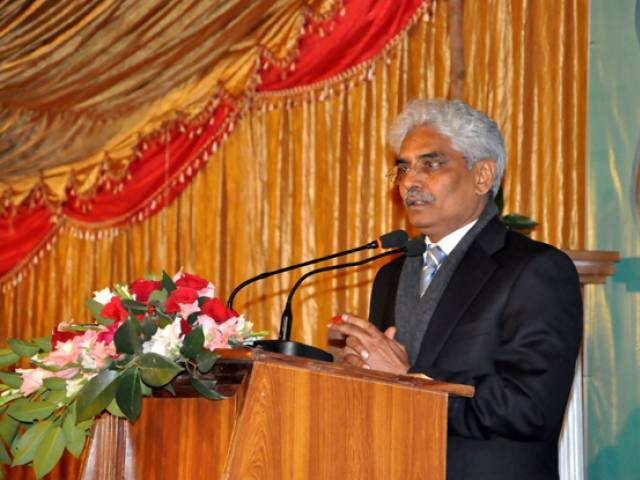Universities fail to take action against plagiarists
Haroon was also found to have plagiarised from a thesis of John Edward Stone from University of Missouri, USA

Haroon was also found to have plagiarised from a thesis of John Edward Stone from University of Missouri, USA. PHOTO: ciit-atd.edu.pk
Rashid had approached the court last year when a four-member body had just submitted their report regarding his thesis from the Preston University, which the HEC initially found to be 72 per cent plagiarised.
The four-member probe body, which includes Dean FAST University Dr Ayub Alvi, Vice Chancellor Abasyn University Dr Jamil Ahmad, Director Barani Institute of Information Technology Dr Jamil Sarwar and Dr Riaz Ahmed -- a representative for HEC from Arid Agriculture University’s Quality Enhancement Cell, concluded in its report that his “thesis does not justify award of PhD degree.”
Plagiarised PhD thesis: COMSAT pro-rector’s petition challenging probe dismissed
The chapter by chapter analysis report has comments like “very highly plagiarised, highly plagiarised and extremely plagiarised.”
According to findings of the report, most of the content has been lifted from the original thesis of Rafiqul Zaman Khan submitted at Hamdard University, New Delhi, India in the PhD programme in 2004 titled “Empirical Study of Task Partitioning, Scheduling and Load Balancing Strategies for Distributed Images of Computing System.”
Haroon was also found to have plagiarised from a thesis of John Edward Stone from University of Missouri, USA and several other research papers.
Preston University Chancellor Dr Abdul Basit forwarded the report to HEC, saying “the outcome of further action(s) to be taken by university will be shared subsequently.”
The similarity index of chapter six has been found “highly plagiarised” which is 81 per cent and matching various sources of which 58 per cent has been copied from a research paper published in Malaysian Journal of Computer Science in 1999.
About 69 per cent of contents of chapter 10 were also found matching another article. At some places tables have been copied with same reference and data, while at one chapter no acknowledgement has been made to lecture notes for students of Berkley University, USA.
Rashid has been the recipient of Sitara-e-Imtiaz in the previous Pakistan People’s Party government and has been working with the CIIT for past over five years.
From here on, CIIT university’s top management has to decide about the fate of its pro-rector and CEO of subsidiary which is NTS.
When contacted, both the pro-rector and CIIT Registrar Izhar Hussain did not respond to the messages and calls.
The number of professors, on the HEC’s website found involve in plagiarism keeps increasing.
If the number of pending cases is added, the total would be well over 50 but despite all reminders and notices from the HEC, varsities have failed to take action against such “eminent” staffers.
Confession: Ex-HEC head apologises for plagiarism
For instance, among the blacklisted teachers, Fayyaz Ahmed, a lecturer from the National University of Modern Languages (Numl) is still teaching in the Persian language department even after the university issued him a warning letter.
Another teacher from Quaid-i-Azam University has also been listed, for which the HEC has requested the latter to take action against him but the educational institute has not replied since then.
Dr Shamraz Firdous from the Pakistan Institute of Engineering and Applied Sciences (Pieas) was also found involved in plagiarism. He was also awarded best research award in March 2015, though the cash payment was not awarded by HEC, the certificate has yet to be returned.
Similarly, rest of the teachers has also managed to retain their positions at different universities but the HEC has no law to punish such teachers except sending out notifications to the vice chancellors who remain unmoved on such issues.
But the question remains as to how the varsities will be forced to take action against such individuals in the academia.
For this the HEC must seek parliament’s help in getting its ordinance of 2002 amended.
Otherwise, the list will keep increasing and will become a blot on the higher education sector.
Published in The Express Tribune, June 6th, 2016.



















COMMENTS
Comments are moderated and generally will be posted if they are on-topic and not abusive.
For more information, please see our Comments FAQ